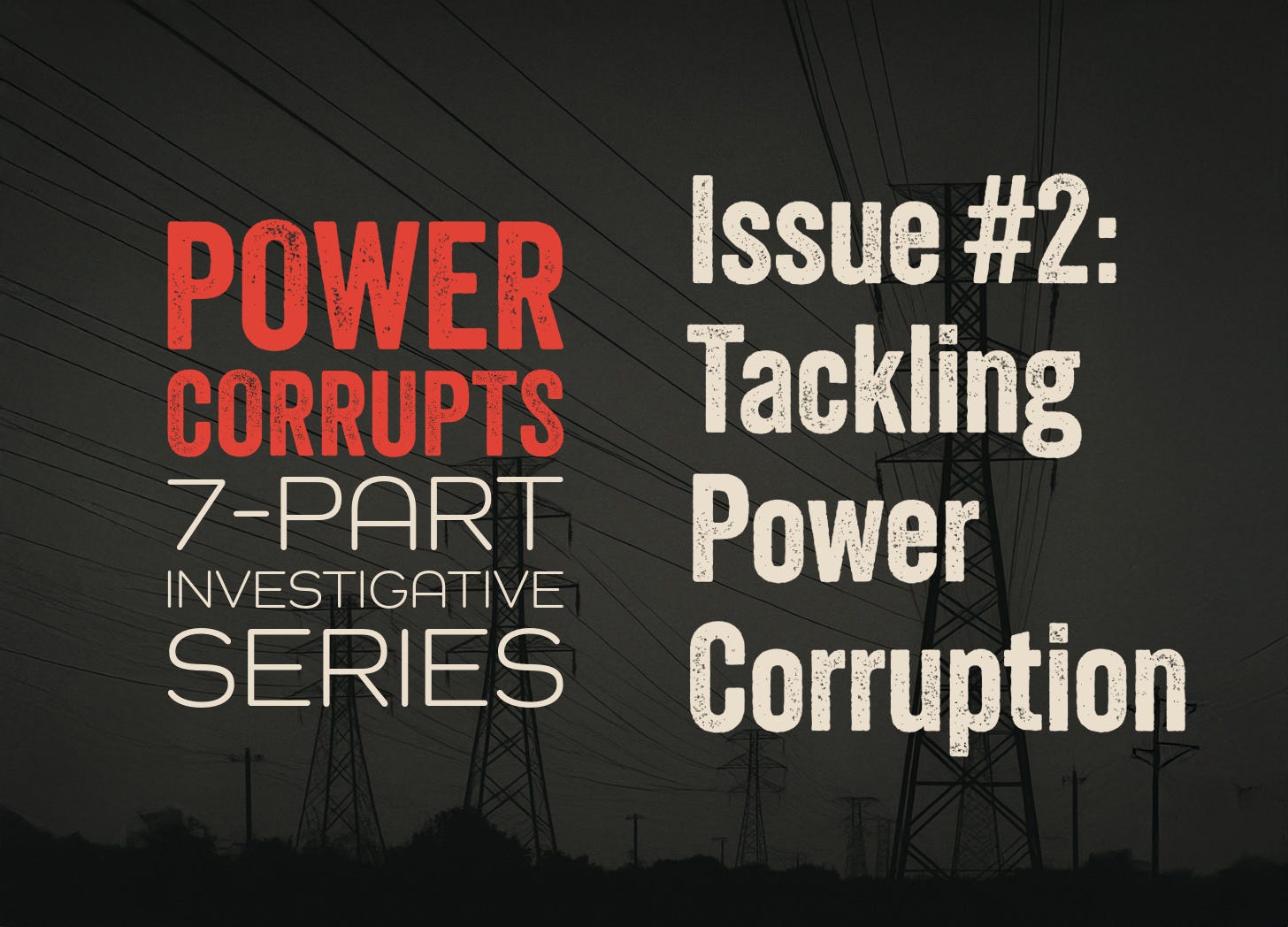"Power Corrupts" #2: Why Your Bills Keep Rising (While Clean Energy Gets Blocked)
While Former Illinois House Speaker Michael Madigan was sentenced to 7.5 years in prison last week for his bribery-for-bailouts corruption with ComEd, billions more in utility subsidies are being stolen right under our noses. Last week you read about Chuck Jones's Ohio corruption scheme. This week, Madigan's sentencing shows this isn't isolated corruption but a systemic problem. Here's why the crisis is actually accelerating.
Shining a light on power corruption has broad implications. It exposes the influence of dark money, showing how one industry secretly spends millions to manipulate public policy to fund its ailing business practices. It reveals the deep pockets of corporate monopolies and the vulnerability of state legislators and regulators to having their pockets lined. It reflects how Supreme Court decisions favoring corporations make it harder for prosecutors to monitor and punish racketeering. Allowed to spread, deceitful and illegal practices by utilities are akin to a national brownout, dimming democracy and the public's faith in key institutions.
Power corruption also poses profound economy-wide impacts since electricity generation and delivery is perhaps our nation's largest industry, with utility assets reaching approximately $2.3 trillion. Bailouts distort price signals, give preference to old and dirty generators, lead to waste and inefficiencies, and block energy innovation and clean power. Since utility monopolies also are our biggest polluters, their scandal-obtained subsidies result in massive amounts of unnecessary emissions that damage public health and the environment.
Electric utilities have faced a few scandals over the past century or so, but this book argues corruption is growing because the power industry's conventional business model is falling apart. Rapid technology advances--including sensors, smart meters, controls, smaller-scale generators, advanced turbines, microgrids, and battery storage--overwhelm their monopoly mindsets and outmoded generators. Threatened utilities, in turn, gun for taxpayer- and ratepayer-funded subsidies, which they increasingly seek through fraud-filled schemes.
Corruption, however, can be challenged, and this book reports on blocked bailouts and options for increased transparency and ethics. We customers and citizens are paying not only for the electricity we use but also the taxes that pay to regulate, subsidize, and investigate utility companies. We should demand more power.
Why This Matters to You
This isn't some abstract policy debate. Utility corruption reaches into your wallet every month through higher electricity bills to pay for unnecessary bailouts of dirty power plants, blocked wind, solar, and battery projects that would slash your energy costs, tax dollars wasted on investigations and prosecutions, and a rigged system that keeps you dependent on expensive, polluting energy instead of cheaper clean alternatives. When utilities can buy politicians and intimidate citizens, we all pay the price—financially and environmentally.
Next Week Teaser
Thursday: See how Chuck Jones took his corruption scheme all the way to the White House—and got a personal audience with the president. The federal conspiracy that rigged energy policy from 2017-2021.
Your turn: Comment and tell us—what's your biggest frustration with your local utility?


